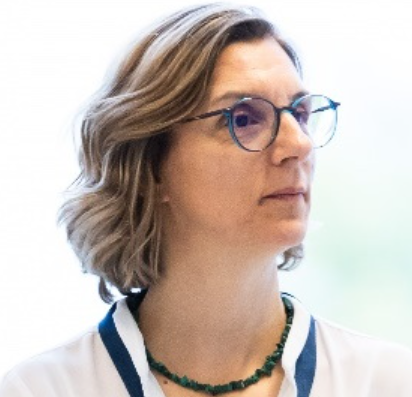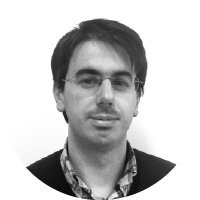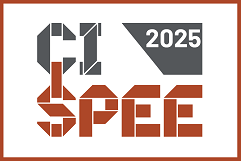WSI.2 - Combining Experiential Learning and Team-Based Learning
Overview: The motto of CISPEE 2025 "Emerging Trends in Engineering Education: Adapting to a Changing World" is the driver for the proposed workshop. The workshop puts participants in the role of students and illustrates, hands-on, how to combine two very different active learning strategies, with the goal of promoting deep learning and critical thinking.
The adoption of active learning strategies in higher education is key for developing well-rounded engineers, with both technical, soft and transferable skills. Engineering graduates need to be able to solve complex problems, which requires a deep understanding of fundamental principles and the ability to relate and apply them. For that they need to possess technical knowledge and competences, soft skills relevant to the profession, and digital literacy. In a context of rapid scientific and technological advances, the ability and openness to lifelong learning are also essential aspects for the success of future engineers.
Active learning strategies, which involve students actively engaging with the content, solving problems, and collaborating with peers, are crucial for attaining a deeper level of understanding. With these strategies, students are called to participate in different types of activities and are challenged in various ways.
One form of active learning that is privileged by engineering instructors is experiential learning. In this form of learning, students learn by doing, namely by engaging in hands-on activities and reflecting on those experiences. This process facilitates closing the gap between theory, previous knowledge, and real-life situations.
With a focus on small-group work, team-based learning enables applying conceptual knowledge using a structured sequence of activities. Typically, team-based learning includes: 1) individual work; 2) group work; 3) immediate feedback. Team-based learning makes use of problem-solving activities that apply conceptual and procedural knowledge. This approach is versatile as it can be used for small, medium and large size classes, as activities are organised in different numbers of small groups (often, 4 to 7 students).
Combining the benefits of hands-on activities with team-based learning can help engineering students bridge the gap between theory, prior knowledge, and real-world applications, while fostering a structured approach to deep learning and enhancing critical thinking skills.
The presenters have implemented this combined approach in their courses. The pedagogical context in which the combination of experiential and team-based learning was implemented includes a wide range of teaching and learning strategies and resources that scaffold autonomous and self-regulated learning, enabling a transition to personalised learning. In addition, the sessions using this combined approach were implemented in a space specially designed for active teaching and learning.
The presenters will share their experience of combining these two strategies with the participants, using examples from their courses and feedback from their students. This combined approach was implemented using digital tools, to foster digital literacy and induce practices in the context of the ongoing digital transformation.
The participants will experience the approach proposed from a student perspective. The workshop will include: i) experiential learning; ii) team-based learning; iii) overview of the approach adopted, reflections and sharing experiences to enhance student learning and the development of critical thinking in undergraduate engineering programmes.

Margarida Pinho Lopes
Margarida Pinho-Lopes is an Assistant Professor at the Department of Civil Engineering at the University of Aveiro, Portugal, and a Visiting Academic at the University of Southampton, United Kingdom. Her area of work is geotechnical engineering. She holds a PhD in Civil Engineering from the Faculty of Engineering of the University of Porto (Portugal).
Her research work is on geotechnical engineering, particularly on the application of geosynthetics in civil engineering. Her current research interests include numerical models for geosynthetics, nature-based solutions for soil reinforcement, sustainable geotechnical solutions, and geotechnical engineering education.
Margarida has experience with student-centred learning models, such as problem- and project-based learning, team-based learning, feedback practices, experiential learning, and outreach activities. She is involved in projects related to pedagogical innovation in higher education and is a member of ISSMGE TC306 Geoengineering Education, a Fellow of AdvanceHE and of SPEE. She is also a council member of the Pedagogical Board of University of Aveiro.
She received the New Frontiers of Engineering – Higher Education Teachers award (2012, 2016, 2023) by the Portuguese Institution of Engineers and the Good Pedagogical Practices Award from the University of Aveiro in 2022, with an Honourable Mention in 2021.

Joaquim Macedo
Joaquim Macedo is an Assistant Professor in the Department of Civil Engineering, University of Aveiro, where he completed his PhD in 2013 on the topic of road traffic microsimulation. He works in the fields of transportation infrastructures and geotechnics and teaches several courses on those topics.
He is the supervisor of ongoing PhD and master’s students and has supervised and co-supervised several master's theses. His main research interests are Traffic Engineering, particularly traffic modeling, didactics in higher education, and geotechnics applied to transportation infrastructures.
Since 2007, Joaquim has been implementing active learning strategies in the courses he teaches, especially project-based learning and team-based learning. He is involved in pedagogical innovation projects in higher education and is a member of SPEE, the UA pedagogical innovation support team, and author of several publications on engineering education.
He received the New Frontiers of Engineering – Higher Education Teachers award (2012, 2016, 2023) by the Portuguese Institution of Engineers and an Honourable Mention in the Good Pedagogical Practices Award from the University of Aveiro in 2021.

